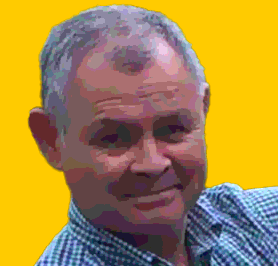Carlos Pérez has worked for over two decades on building sustainable landscapes in Central America. Nicaraguan by birth, he takes pride that also smaller countries can develop innovative solutions to inspire the world.
WHERE WE WORK
In Central America, Solidaridad is involved in 4 territorial landscapes:
- The Nicaraguan highlands, where we have a coffee-based approach with a focus on carbon sequestration via shade cropping systems. This includes the planting of trees that reach some 4 meter in height, creating a 40% canopy over the coffee bushes;
- in the Mexican Chiapas state, where palm oil effluent water needs to be cleaned up to maintain the mangrove ecosystems;
- in the capital of Honduras – Tegucigalpa – where a large water basin originating in the proximities of highland coffee farmers needs to be captured and filtered via pine trees in order to bring potable water to the over 1 million inhabitants; and
- in the heart of the Honduran oil palm region around the municipality of Jesús de Otero.

A SYSTEM APPROACH TO FOOD SECURITY
Sustainable landscapes are all about healthy and circular food systems.
Carlos Pérez
Carlos is an organized man. He works with his own developed methodology starting with an operational pyramid. At the heart is food security. “Sustainable landscapes are all about healthy and circular food systems”, Carlos added.
The first step starts from realism. Determine the economic evaluation of a landscape: who are the actors involved? What are the issues? Which supply chains can be identified? The second step is to evaluate the costs to restore eventual damage. Step three is alignment with the public sector. To shape an enabling policy environment, and bring critical actors to a round table to debate openly the need and willingness to restore the damaged landscape. And once the groundwork is done, the fourth step is to get an answer to the big question: who is paying the bill for the ecological and also social damage done to a landscape?

THE JESUS DE OTERA ACT
Carlos highlights the well-known signing of the Municipality of Jesus de Otero act in 2003, for which he attended the signing act. The palm mills were producing tremendous problems with unfiltered and toxic effluent waters streaming straight into the coastal water system, polluting drinking water to the people, and beyond. This also gave sedimentation and further pollution directly into the Caribbean water basin that hosts the second largest coral reef system on earth.
The 2003 act culminated in the construction of a payment for ecosystems fund. The fund, as the name says, is to ensure that different stakeholders are actually paying the costs for cleaning the water, for having healthy souls, clean air, living wages, reforestation and biodiversity reparation. This public-private fund was paid by palm farmers and industry, by all citizens via their water bill, and by the municipality.
Eighteen years later, the Jesus de Otero case helps Solidaridad and stakeholders to learn fundamental lessons on landscape management. Not everything went perfectly. Suspected nepotism, insufficient funds, lack of long-term commitment, and wrong analysis on the business case for sustainability have all been issues to deal with. Most fundamental issue was the lack of communication and empathy between stakeholders. Still, this innovation functions as a landmark to the broader region.
FINDING THE SWEET SPOT ON THE LANDSCAPE PATHWAY
Solidaridad has managed to define its sweet spot on the landscape pathway: a system approach, whereby integral analysis from multiple disciplines and sectors and subsequent integral intervention can make the difference. The key to success is this integral management by a local public authority, backed by smart plans, regulations and funding.
We are building bridges. We connect opposing stakeholders to work on the awareness that short-term capital-driven returns are not working and even become counterproductive to all stakeholders of the landscape involved.
Carlos Pérez
Simply said: good landscapes work with a connector like Solidaridad. Bad landscapes are left orphaned.

